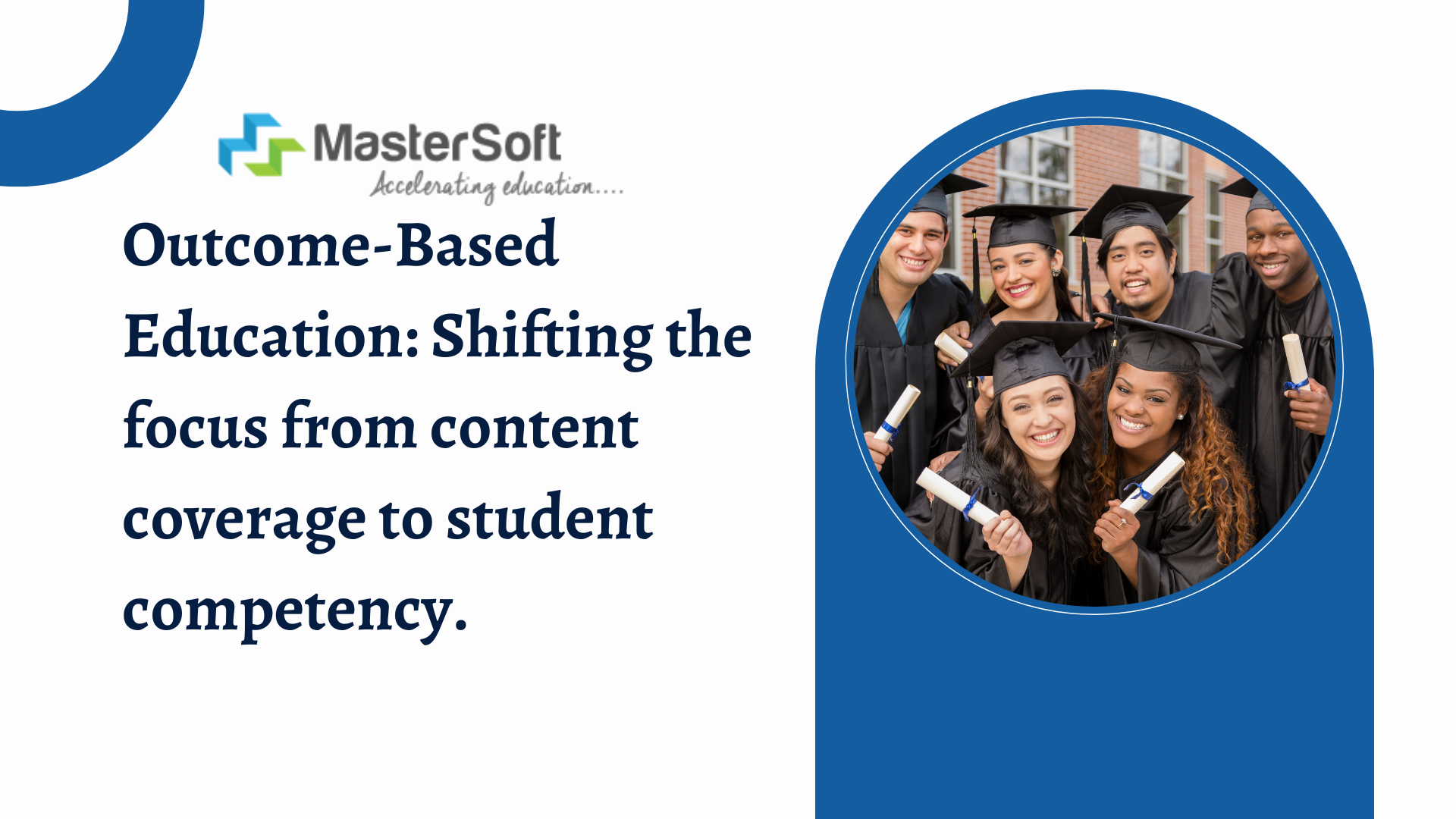
Beyond the Textbook: The Rise of Outcome-Based Education
The traditional education system often focuses on content delivery and memorization. While knowledge acquisition remains important, a growing movement emphasizes a more dynamic approach – Outcome-Based Education (OBE). This blog explores the core principles of OBE and how it’s transforming education from a passive experience to an active journey towards achieving defined goals.
What is Outcome-Based Education?
Outcome-Based Education (OBE) shifts the focus from simply teaching content to achieving specific learning outcomes. Instead of asking “what will be taught,” OBE asks “what will students be able to do by the end?” This approach emphasizes what students should be able to know, understand, and apply as a result of their educational experience.
The Core Principles of OBE
OBE revolves around several key principles:
-
Clearly Defined Outcomes: The foundation of OBE lies in clearly defined learning outcomes. These outcomes are measurable statements outlining what students are expected to achieve by the end of a course or program.
-
Alignment of Learning Activities: Learning activities, including lectures, discussions, assignments, and assessments, are carefully designed to help students achieve the stated learning outcomes. This ensures that all elements of the educational experience contribute to reaching the desired goals.
-
Assessment Strategies: Assessment plays a crucial role in OBE. Instead of solely relying on traditional exams, OBE utilizes a variety of assessment strategies to gauge student progress and mastery of learning outcomes. This may include portfolios, projects, presentations, and performance-based assessments.
-
Continuous Improvement: OBE is a cyclical process. Assessment data is continuously analyzed to identify areas where the curriculum or teaching methods need improvement. This data-driven approach ensures that the educational experience is constantly evolving to better meet student needs.
Benefits of Outcome-Based Education
OBE offers numerous advantages for both students and educators:
-
Enhanced Student Learning: OBE fosters a more engaged and purposeful learning experience. Students clearly understand what they are expected to learn and can actively work towards achieving those goals.
-
Development of Essential Skills: OBE emphasizes the development of essential skills like critical thinking, problem-solving, communication, and collaboration. These skills are vital for success in both academic and professional settings.
-
Improved Teaching and Learning Strategies: OBE encourages educators to focus on effective teaching strategies that cater to diverse learning styles and promote student engagement.
-
Measurable Program Effectiveness: Clear learning outcomes allow educators to measure the effectiveness of their teaching and make informed decisions about curriculum design and instruction.
Challenges and Considerations
While OBE presents a compelling approach, some challenges need to be addressed. Developing clear learning outcomes, designing appropriate assessments, and shifting teaching practices require dedicated effort and professional development for educators. Furthermore, ensuring a balance between achieving objectives and fostering creativity and exploration remains crucial.
The Future of Outcome-Based Education
The future of education is undoubtedly outcome-oriented. As technology continues to evolve, we can expect advancements in assessment tools and personalized learning strategies that cater to individual student needs. Additionally, a focus on global competencies and lifelong learning skills will likely become even more prominent within OBE frameworks.
Conclusion: Education with a Purpose
Outcome-Based Education is not just a new educational fad; it’s a paradigm shift. By focusing on achieving well-defined learning outcomes, OBE empowers students to become active participants in their education and equips them with the skills and knowledge they need to thrive in a rapidly changing world. As educational institutions embrace OBE principles, they can cultivate a generation of learners who are not just well-informed but also ready to tackle real-world challenges and make a positive impact on society.


